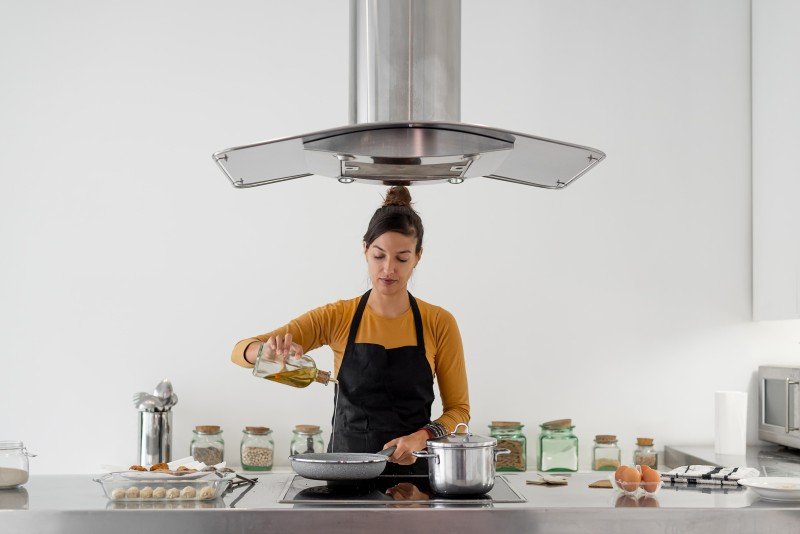20 Reasons To Believe Cookers And Hobs Cannot Be Forgotten

Understanding Cookers and Hobs: A Comprehensive Guide
Cooking is an essential aspect of everyday life, and the evolution of kitchen home appliances plays a significant role in how effectively and successfully individuals prepare their meals. Amongst these home appliances, cookers and hobs are 2 of the most essential instruments found in modern-day kitchen areas. This article digs into the differences in between cookers and hobs, examines their different types, and offers insights on their functions, upkeep, and selection procedure.
What are Cookers and Hobs?
Cookers
Cookers are detailed kitchen devices developed for cooking jobs, usually integrating an oven and a hob. They can be found in numerous configurations and types, accommodating diverse cooking needs and choices.
Hobs
Hobs, on the other hand, are more concentrated home appliances mostly utilized for boiling, frying, and other stovetop cooking methods. Hobs can be standalone units or an integrated part of larger cookers.
| Feature | Cookers | Hobs |
|---|---|---|
| Function | Integrates oven and hob | Stovetop cooking only |
| Design | All-in-one unit | Different system or integrated |
| Types | Electric, gas, dual fuel | Gas, electric, induction |
| Setup | Permits more versatility | Built into the counter top |
| Cost Range | Usually greater | Differs extensively |
Kinds of Cookers
1. Electric Cookers
Electric cookers utilize electrical energy as their main power source. They often feature an integrated oven and multiple cooking zones on the hob.
Advantages:
- Even heat circulation
- Readily available in numerous designs (e.g., freestanding, built-in)
2. Gas Cookers
Gas cookers operate on gas or liquefied petroleum gas (LPG). They offer instant heat control, making them a preferred among professional chefs.
Advantages:
- Instant heat modifications
- More budget friendly functional costs
3. Double Fuel Cookers
Dual fuel cookers integrate the heat of gas with the efficiency of electric ovens. Click Link enables the very best of both worlds, supplying control and consistent results.
Advantages:
- Flexible cooking options
- Precise control over stovetop cooking and baking
4. Variety Cookers
Variety cookers are bigger and more effective than basic cookers, featuring numerous ovens and hobs for substantial cooking jobs.
Advantages:
- Ideal for big families or cooking for occasions
- Offers different cooking choices in one appliance
Types of Hobs
1. Gas Hobs
Gas hobs are preferred for their fast heating and strong flame, making them outstanding for searing and stir-frying.
Benefits:
- Instant heat and control
- Compatible with any kind of pots and pans
2. Electric Hobs
Electric hobs heat up using electric coils or glass-ceramic surfaces, offering a modern-day appearance and effective cooking.
Benefits:
- Easier to clean
- Consistent surface area suitable for various pots and pans
3. Induction Hobs
Induction hobs use electromagnetic fields to heat pots and pans straight, providing quick and energy-efficient cooking.
Benefits:
- Safe (cool surface area after eliminating cookware)
- Energy-efficient and exact
4. Solid Plate Hobs
These conventional hobs use solid electric plates that warm up gradually.
Benefits:
- Rugged and durable
- Generally more budget-friendly than other types
Secret Features to Consider
When choosing a cooker or hob, numerous features must be taken into account:
- Size and Space: Consider the size of your kitchen and the amount of work space required.
- Cooking Style: Choose based on preference-- gas for control, induction for effectiveness, and so on.
- Effectiveness Ratings: Look for energy-efficient designs to decrease energy costs.
- Alleviate of Cleaning: Smooth surface areas assist in easy maintenance.
- Safety Features: Automatic shutoff, flame failure devices, and child locks enhance security.
Upkeep Tips
Keeping cookers and hobs lengthens their life-span and makes sure safe operations.
- Routine Cleaning: Wipe down surfaces after usage to avoid accumulation.
- Examine Seals: Check oven door seals routinely for wear and tear to maintain effectiveness.
- Service Regularly: Schedule expert servicing a minimum of once a year.
- Ideal Cookware: Use pots and pans suitable for your hob type to avoid damage.
Often Asked Questions (FAQs)
What is the difference in between a cooker and a hob?
A cooker combines an oven and hob in one unit, while a hob is usually a standalone appliance for stovetop cooking.
Do I require an expert to set up a gas cooker or hob?
Yes, expert setup is suggested for gas devices to guarantee security and compliance with local policies.
Can I utilize any kind of pots and pans on induction hobs?
Induction hobs need magnetic cookware. Stainless-steel or cast iron pots work best. Non-magnetic products will not warm up.
Are electric cookers more energy-efficient than gas cookers?
While both have benefits, electric cookers tend to be more energy-efficient total, specifically with modern, high-efficiency designs.
How typically should I clean my cooker or hob?
It is best to clean them after each use and carry out a comprehensive cleansing weekly to avoid buildup and residue.
Understanding the distinctions, features, types, and maintenance ideas for cookers and hobs is vital for any home cook. By picking the best appliance suited to their culinary requirements, users can boost their cooking experience, making meal preparation an effective and satisfying task. Whether going with the immediate control of gas or the smooth effectiveness of induction, selecting the suitable cooker or hob can cause a notably improved kitchen experience.

